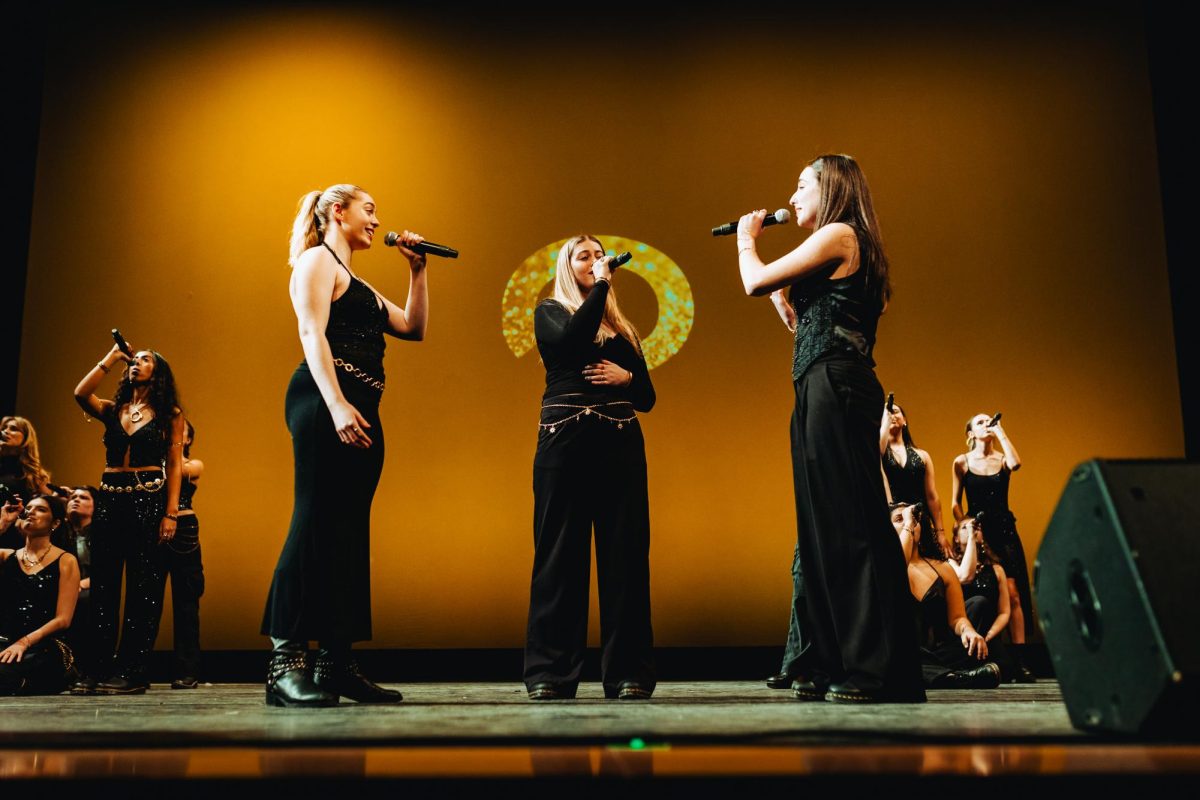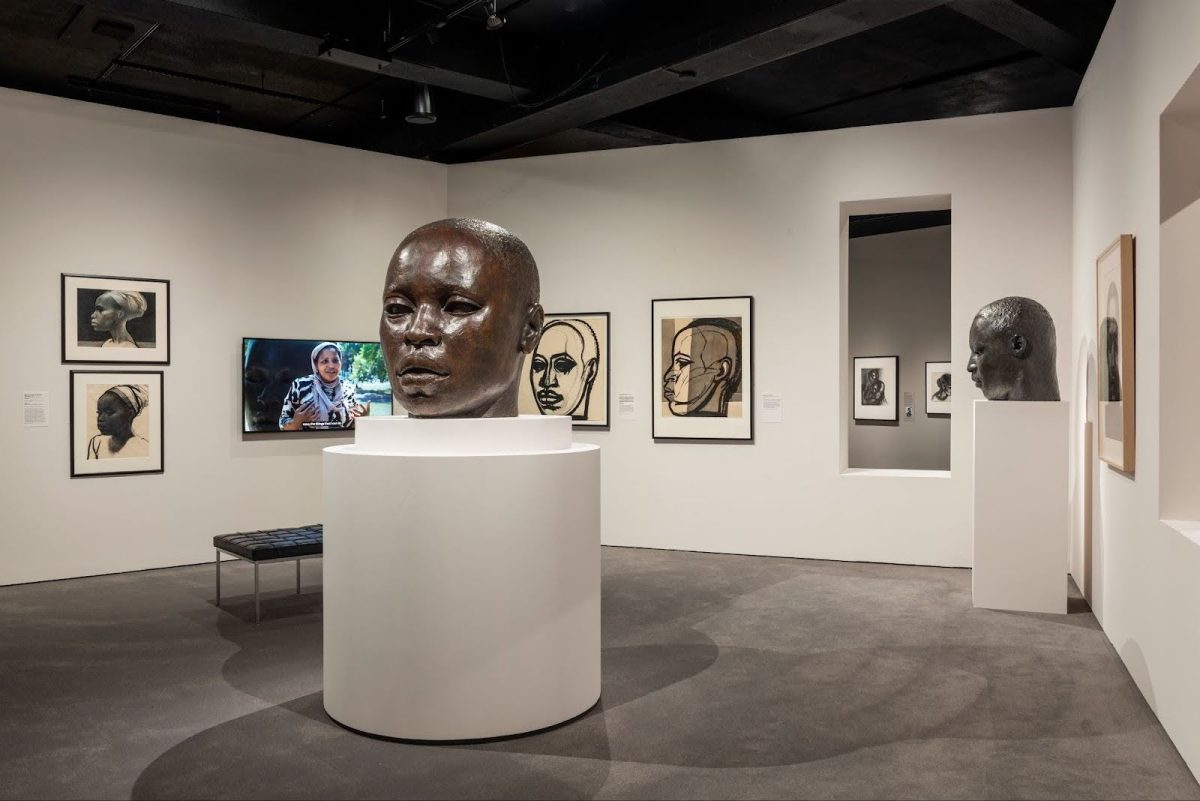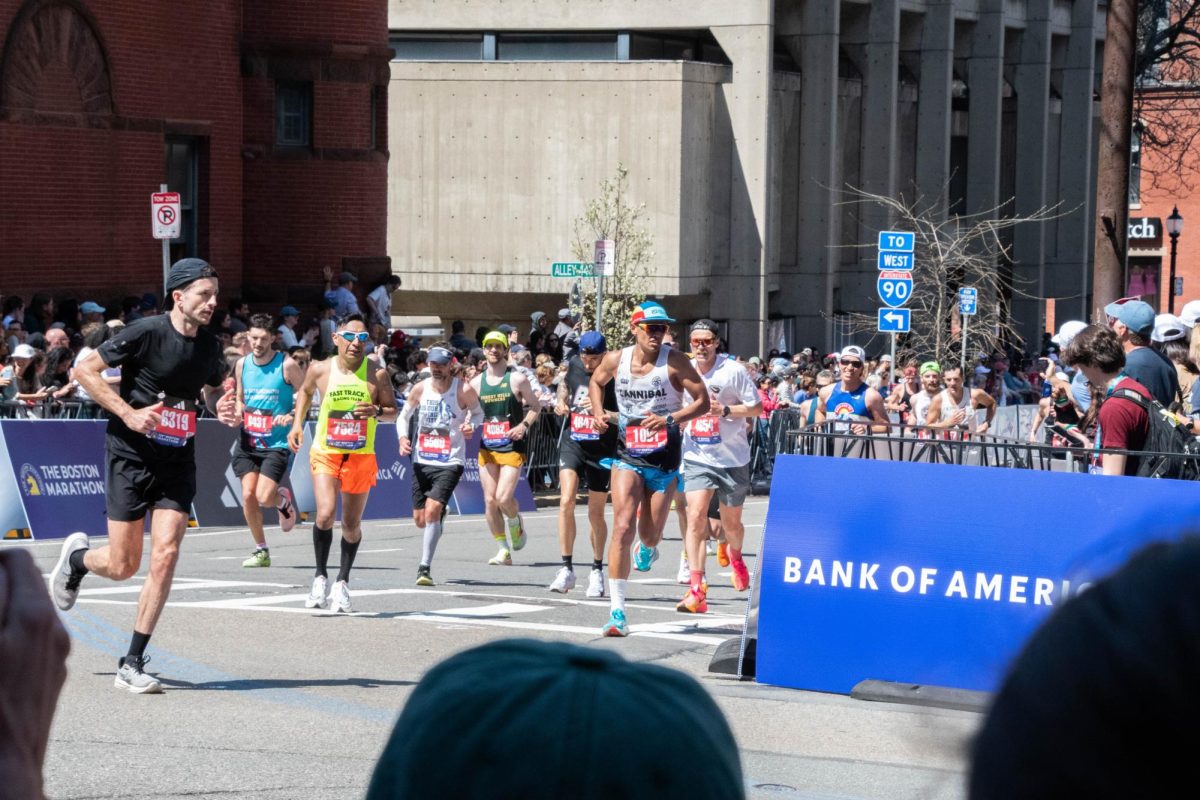By Nick Marini, News Staff
Alt-J is a hard band to figure out. They sound something like a modern art painting looks, perhaps as the album art for their second full-length release suggests. It seems random but with an underriding feeling of precise calculation, not completely accessible, yet easy to digest as long as you don’t think about the finished product too much.
“This Is All Yours,” Alt-J’s second full-length, is an album that takes a while to get going. Back-to-back intros get fans ready for the first “real” track, titled “Nara,” and even that builds slowly, with less momentum. Like on the first album, the band combines indie-pop guitar riffs with distorted vocals and sounds that get run through the wash of computers.
Lead singer Joe Newman’s vocals offer odd, somewhat cryptic advances delivered in his characteristic high-pitched trill. In the single after “Nara,” titled “Every Other Freckle,” it’s difficult to tell if there is supposed to be humor in the lyrics of the album’s fourth track. The overtly sexual lyrics are reminiscent of other weird turn-ons from the hit single of their first effort titled “Fitzpleasure” where Newman croons seductively before the feedback-laden bass crashes on all sides. Just like that, in the aforementioned “Every Other Freckle,” those lines are our segue into the song going full-tilt.
Strange hit-ons aside, there are a few access points. “Left Hand Free” is the first, and despite a head-scratching, uninspired organ solo, it offers enough “Black Keys”-style blues panache to be radio-friendly and worthy of multiple easy listens. It’s the most pop-friendly song on the record and coincidentally, sounds the least like what we’ve heard from Alt-J so far.
After another head-scratching moment by way of the minute-long, angelic flute interlude “Garden of England,” we hit the peak of the record in the brooding single “Hunger of the Pine.” It gives away a formula the band repetitively features, but uses it best: a slow build with a repeated hook, then the beat crashes and all the extra sounds combine to an orchestra of electronic aesthetics mixing with a chord-heavy riff. While the catchy high-profile sample of Miley Cyrus’ “4X4” doesn’t have much to do with what Newman is talking about, it works sonically. The song is busy and discombobulated, but has a snapping rhythm and a smoldering build that works in tune with Alt-J’s electro-folk roots. The “build, crash and ride” formula of “Hunger of the Pine” is the peak of the trio’s atmospheric success.
The rest of the record is an uphill climb for this young band out of Leeds, England. It seems preoccupied with making the listener wonder what the lyrics mean, rather than just finding what works. “Ballad of John Hurt” is another big, moody standout (also formula-following), but the second side of the record is still bogged down with sleepy interludes and dreamy electronic fuzz. Most songs have difficulty getting started and extend quiet, minute-long build ups before hitting the snooze button all over again. When the often-powerful drums finally get their grand entrance, they seem to be hoping the listener is still along for the ride.
Alt-J is perhaps feeling the pressure of its first album’s acclaim. Two of the three remaining members (the founding bassist left the band amicably for personal reasons) were fine arts majors, and in a way it makes sense for their sound. It’s a record that feels labored over, like they calculated each seemingly random sound and lyric to build up to some sort of greater concept or meaning. But it remains unclear. Is there a reason we have a trilogy of songs relating to the Nara region of Japan? Alt-J announces its arrival, stay and departure from the city on separate parts of the record, with not much to take away from it. A sleepy interlude among that mix does not help the case.
While they have certainly found their alt-rock/electronic niche in a revitalized indie market, “This Is All Yours” is an album that would benefit from less messing around with setups, and more of getting to the point. It doesn’t benefit from encoding artsy minimalist keyboard flair with mere shadows of meaning, delaying the catchy beat or swashing hook that may ultimately follow. The key word there is may, because what’s worse is that sometimes the catchiness never follows and the listener has waited for nothing. This is an exercise in craft that doesn’t amount to a cohesive or interesting album. These are a group of musical fine arts graduates that should discern postmodern brushstrokes from enduring indie rock. Those points are where the first record peaked, and it’s what almost saves this one, but it offers only a handful of accessible songs.
Alt-J is a hard band to figure out. They sound something like a modern art painting looks, perhaps as the album art for their second full-length release suggests. It seems random but with an underriding feeling of precise calculation, not completely accessible, yet easy to digest as long as you don’t think about the finished product too much.
“This Is All Yours,” Alt-J’s second full-length, is an album that takes a while to get going. Back-to-back intros get fans ready for the first “real” track, titled “Nara,” and even that builds slowly, with less momentum. Like on the first album, the band combines indie-pop guitar riffs with distorted vocals and sounds that get run through the wash of computers.
Lead singer Joe Newman’s vocals offer odd, somewhat cryptic advances delivered in his characteristic high-pitched trill. In the single after “Nara,” titled “Every Other Freckle,” it’s difficult to tell if there is supposed to be humor in the lyrics of the album’s fourth track. The overtly sexual lyrics are reminiscent of other weird turn-ons from the hit single of their first effort titled “Fitzpleasure” where Newman croons seductively before the feedback-laden bass crashes on all sides. Just like that, in the aforementioned “Every Other Freckle,” those lines are our segue into the song going full-tilt.
Strange hit-ons aside, there are a few access points. “Left Hand Free” is the first, and despite a head-scratching, uninspired organ solo, it offers enough “Black Keys”-style blues panache to be radio-friendly and worthy of multiple easy listens. It’s the most pop-friendly song on the record and coincidentally, sounds the least like what we’ve heard from Alt-J so far.
After another head-scratching moment by way of the minute-long, angelic flute interlude “Garden of England,” we hit the peak of the record in the brooding single “Hunger of the Pine.” It gives away a formula the band repetitively features, but uses it best: a slow build with a repeated hook, then the beat crashes and all the extra sounds combine to an orchestra of electronic aesthetics mixing with a chord-heavy riff. While the catchy high-profile sample of Miley Cyrus’ “4X4” doesn’t have much to do with what Newman is talking about, it works sonically. The song is busy and discombobulated, but has a snapping rhythm and a smoldering build that works in tune with Alt-J’s electro-folk roots. The “build, crash and ride” formula of “Hunger of the Pine” is the peak of the trio’s atmospheric success.
The rest of the record is an uphill climb for this young band out of Leeds, England. It seems preoccupied with making the listener wonder what the lyrics mean, rather than just finding what works. “Ballad of John Hurt” is another big, moody standout (also formula-following), but the second side of the record is still bogged down with sleepy interludes and dreamy electronic fuzz. Most songs have difficulty getting started and extend quiet, minute-long build ups before hitting the snooze button all over again. When the often-powerful drums finally get their grand entrance, they seem to be hoping the listener is still along for the ride.
Alt-J is perhaps feeling the pressure of its first album’s acclaim. Two of the three remaining members (the founding bassist left the band amicably for personal reasons) were fine arts majors, and in a way it makes sense for their sound. It’s a record that feels labored over, like they calculated each seemingly random sound and lyric to build up to some sort of greater concept or meaning. But it remains unclear. Is there a reason we have a trilogy of songs relating to the Nara region of Japan? Alt-J announces its arrival, stay and departure from the city on separate parts of the record, with not much to take away from it. A sleepy interlude among that mix does not help the case.
While they have certainly found their alt-rock/electronic niche in a revitalized indie market, “This Is All Yours” is an album that would benefit from less messing around with setups, and more of getting to the point. It doesn’t benefit from encoding artsy minimalist keyboard flair with mere shadows of meaning, delaying the catchy beat or swashing hook that may ultimately follow. The key word there is may, because what’s worse is that sometimes the catchiness never follows and the listener has waited for nothing. This is an exercise in craft that doesn’t amount to a cohesive or interesting album. These are a group of musical fine arts graduates that should discern postmodern brushstrokes from enduring indie rock. Those points are where the first record peaked, and it’s what almost saves this one, but it offers only a handful of accessible songs.
Photo courtesy Henry Laurisch, Creative Commons









